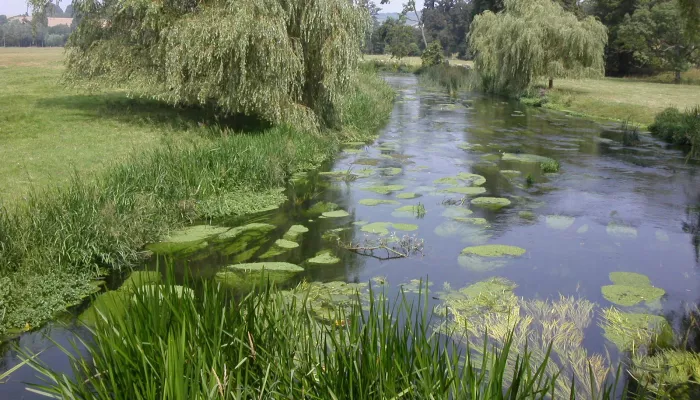Developers are currently required to invest in new wetlands and other measures such as planting trees to create buffer zones in order to achieve this target of ensuring that no additional pressure is put on waterways that are already suffering from an overload of farm slurry and sewage.
Daniel Wynn Head of Nature-based Solutions at Kent Wildlife Trust: “In Kent, the Stour Catchment is quite literally flooded with nitrates and phosphates from various sources, housebuilding being just one of them. Other sources include the agricultural sector and the poorly maintained Waste-water Treatment Works (WwTW) run by the water companies. Legal policies are in place to ensure that water companies upgrade these WwTWs, but now, who can trust the Government to see this through?
“Time and again economic growth has been favoured over environmental protection, and especially now, when the natural capital markets present us with a golden opportunity to imbed green finance within our economy to the benefit of both nature & society, what does the Government do? They get scared and fall back on manifesto commitments to the environment.
“This short-term mindset for immediate gain foreshadows all attempts to build the sustainable future we and many others are working towards. We need a systemic change to rewrite our future and cut off future threats to nature and people through building a sustainable economy with nature at its heart.
“Our rivers need protection, it is disgraceful that a nationally protected site like the Stodmarsh has been allowed to creep into poor condition because of the rubbish, pollution and sewerage that is allowed to freely flow into the river, a river that used to be the life-support system of our landscape is rapidly turning into the poison that will erode the last pieces of nature still clinging on.
“The public has a right to be angry about this, and we stand with them. Nature recovery is fundamental to the health and wellbeing of our society, and we are allowing it to be polluted and ignored – there are other ways, nutrient neutrality is just one of them and a fundamental one for our rivers. If housebuilders and developers get off the hook, then who else will get a free pass to pollute without consequence?”
Craig Bennett, chief executive of The Wildlife Trusts, said: “In May, June and July, the Government made promises to the British people and to Parliament that they would not lower environmental protections or standards.* But just a few weeks later they are planning to do precisely the opposite. They lied – this is a disgraceful move which undermines public trust in this Government.
“Make no mistake – this is a license from the Government for the commercial housebuilding lobby to profit from the pollution of our rivers. Vague offers of money as compensation are not the same as a legislative requirement – and even the existing rules are extremely modest.
“The UK is ranked as one of the worst countries in Europe for water quality and the public are rightly outraged at our rivers being used as open sewers by water companies. Scrapping the rules that are merely trying to stop rivers becoming even more polluted will allow vested interests to make more money at the expense of our rivers and the natural environment.
“The Government has made repeated pledges that they won’t weaken environmental standards and committed just 8 months ago to halve nutrient pollution by the end of the decade. This is another broken promise and makes clear that the Prime Minister would rather look after the interests of developers than the environment – money talks.
“These rules are about preventing pollution, not housing. Piling on pollution from developers into rivers already suffocating from poo and agriculture pollution, will only mean greater pressure is put on farmers to make bigger and faster cuts to nutrient pollution.”

